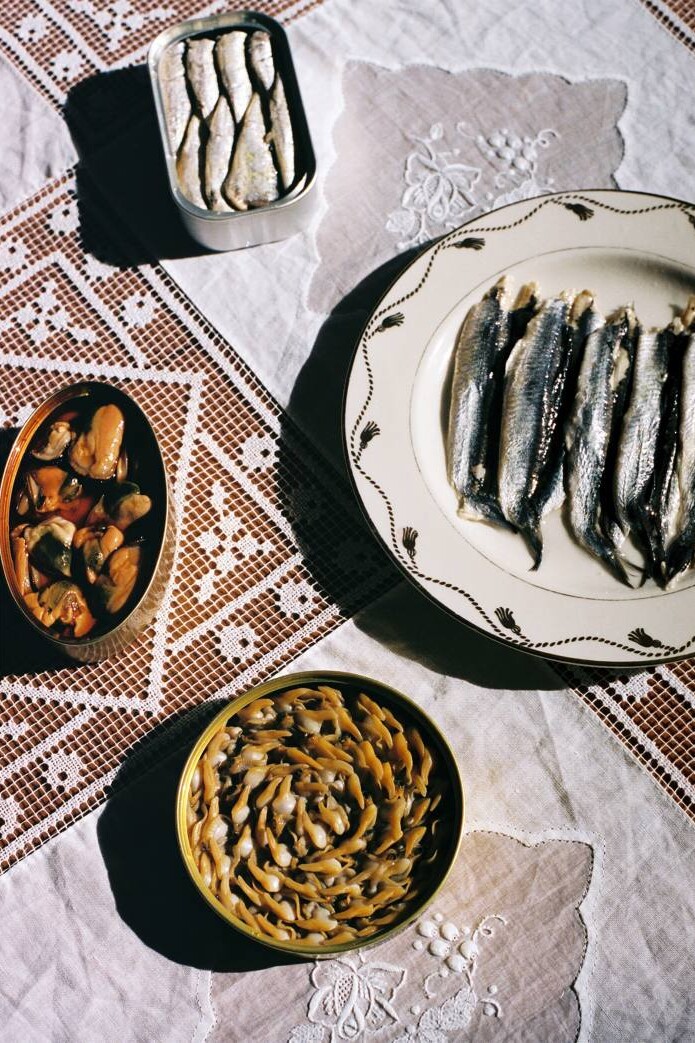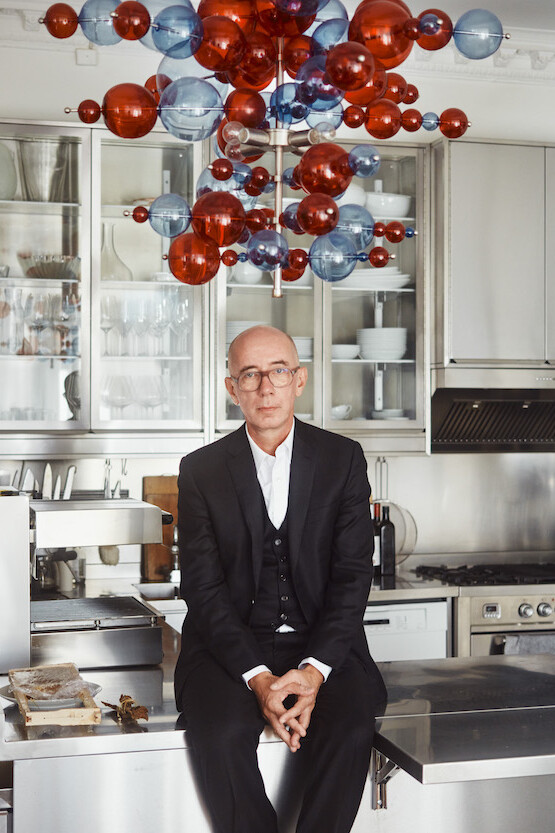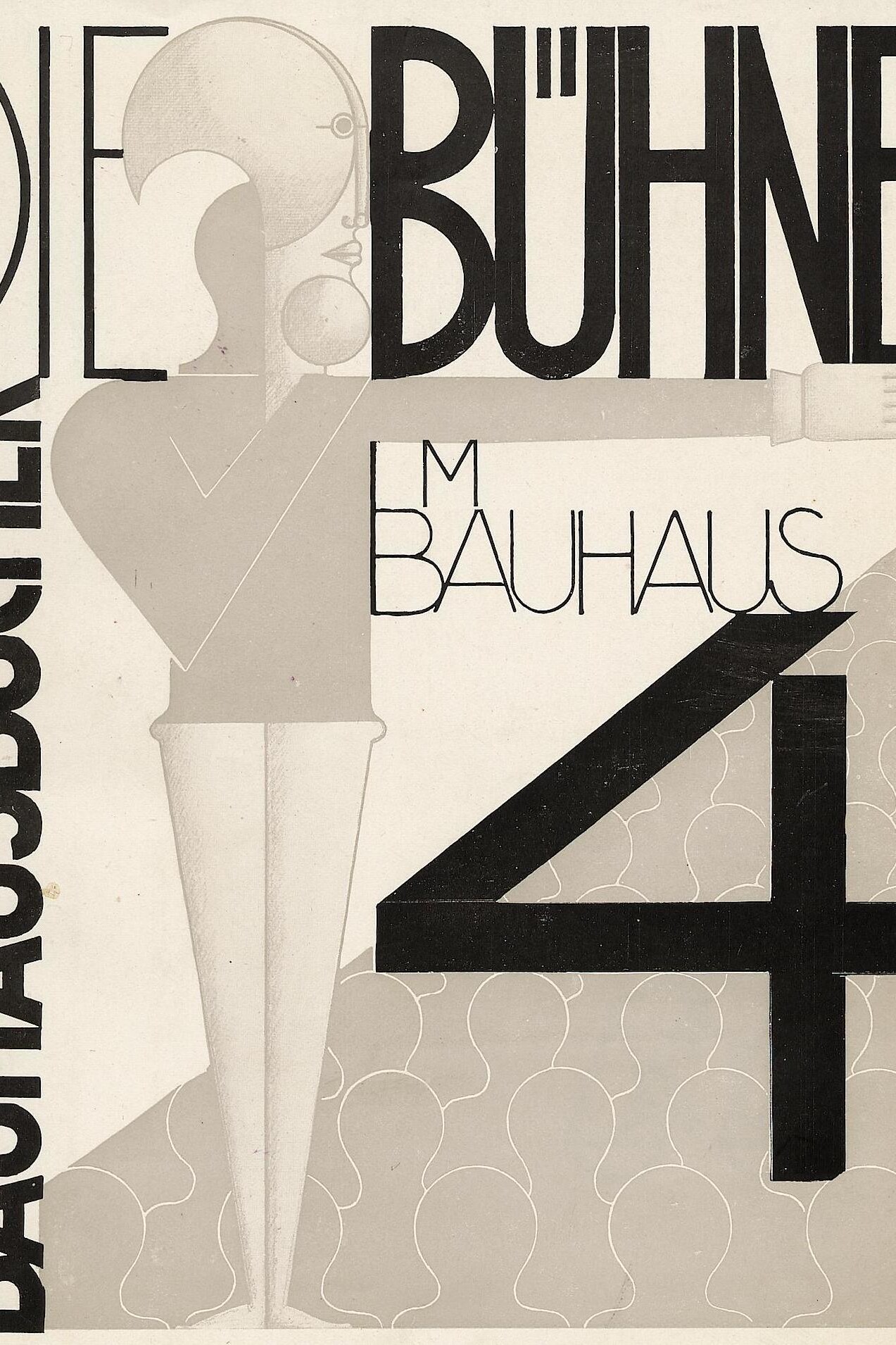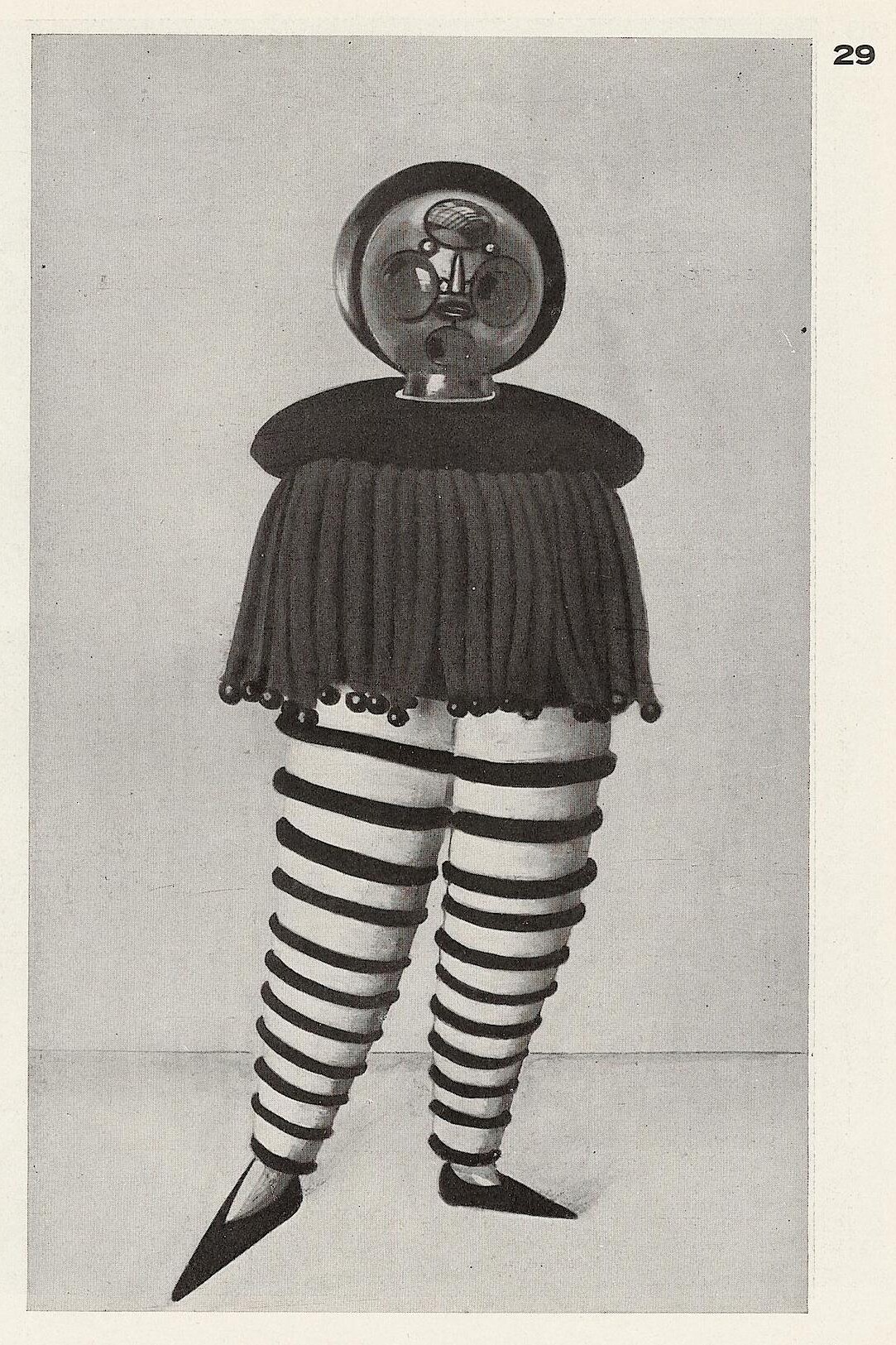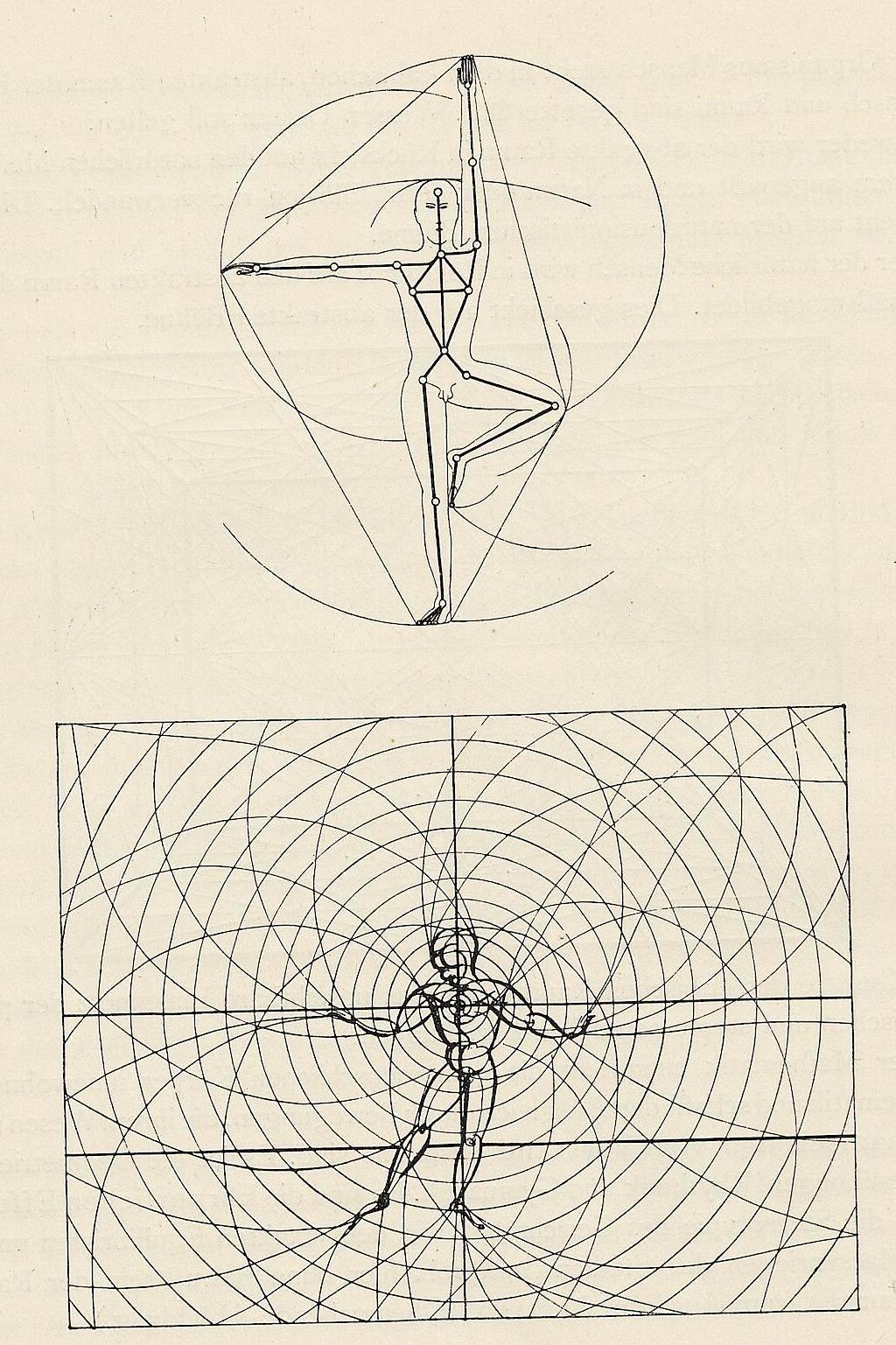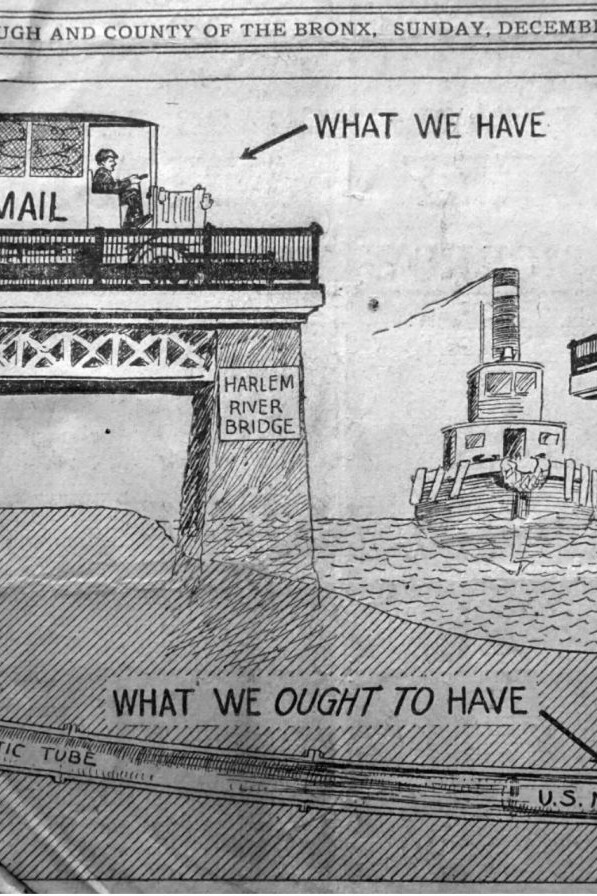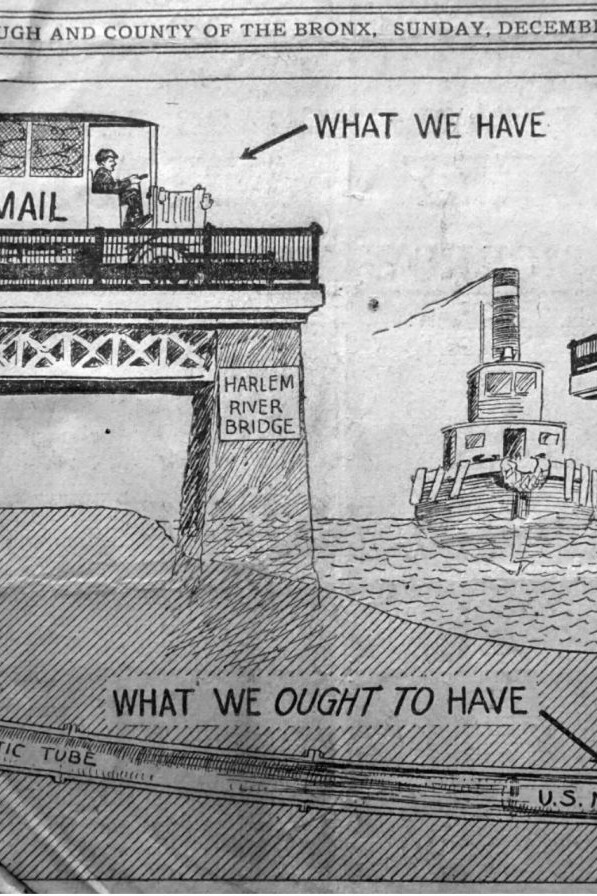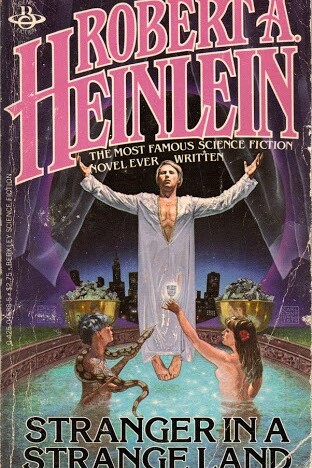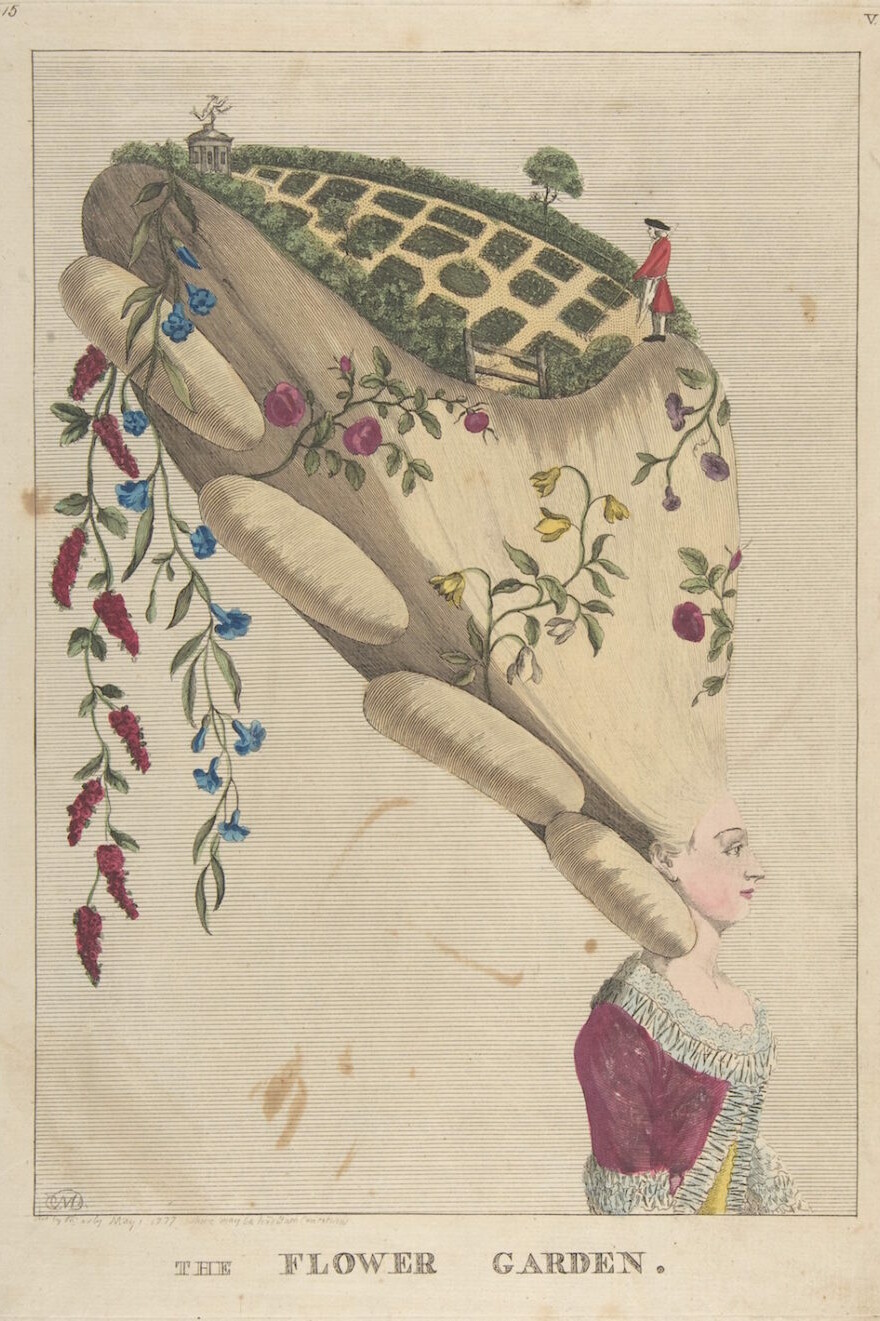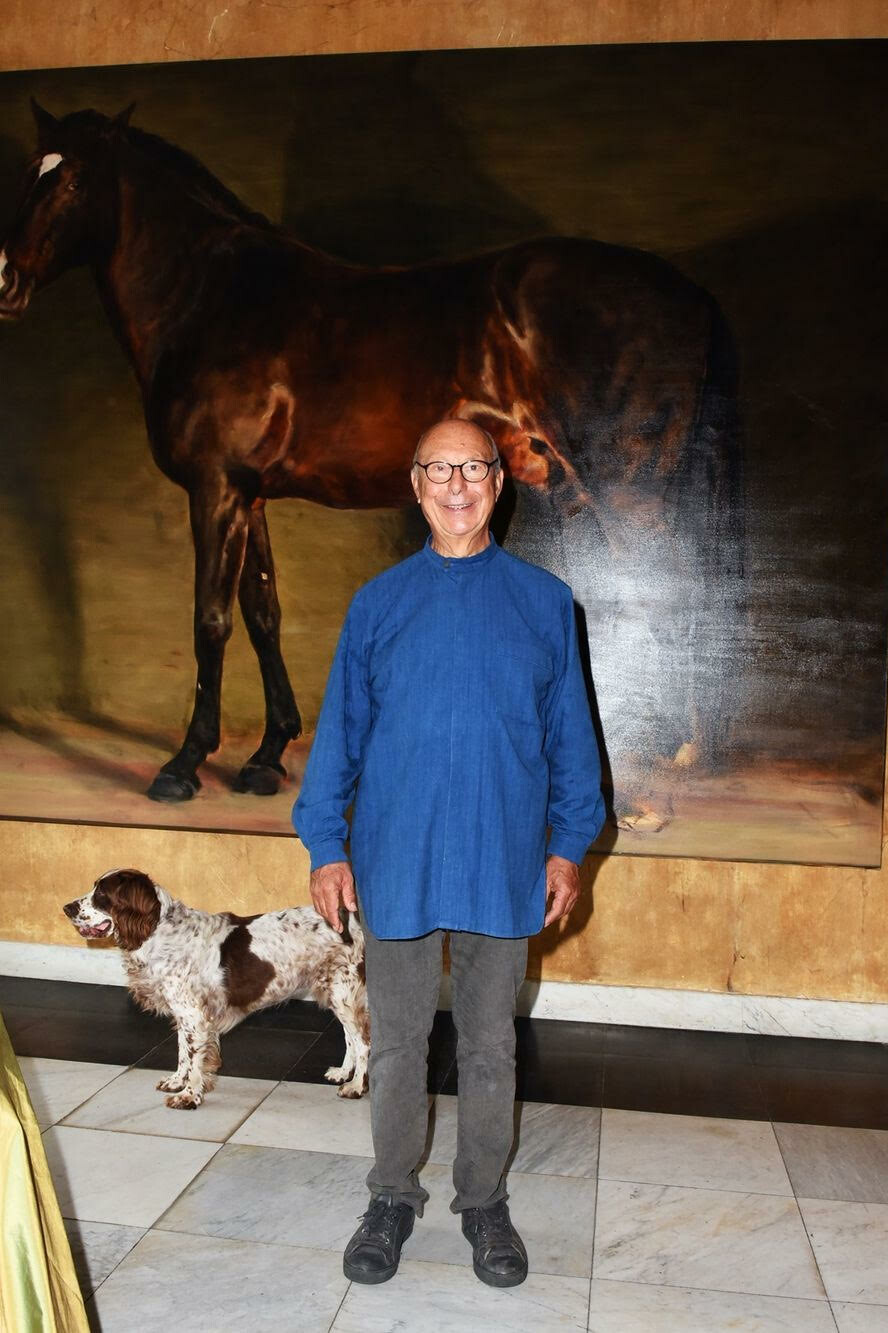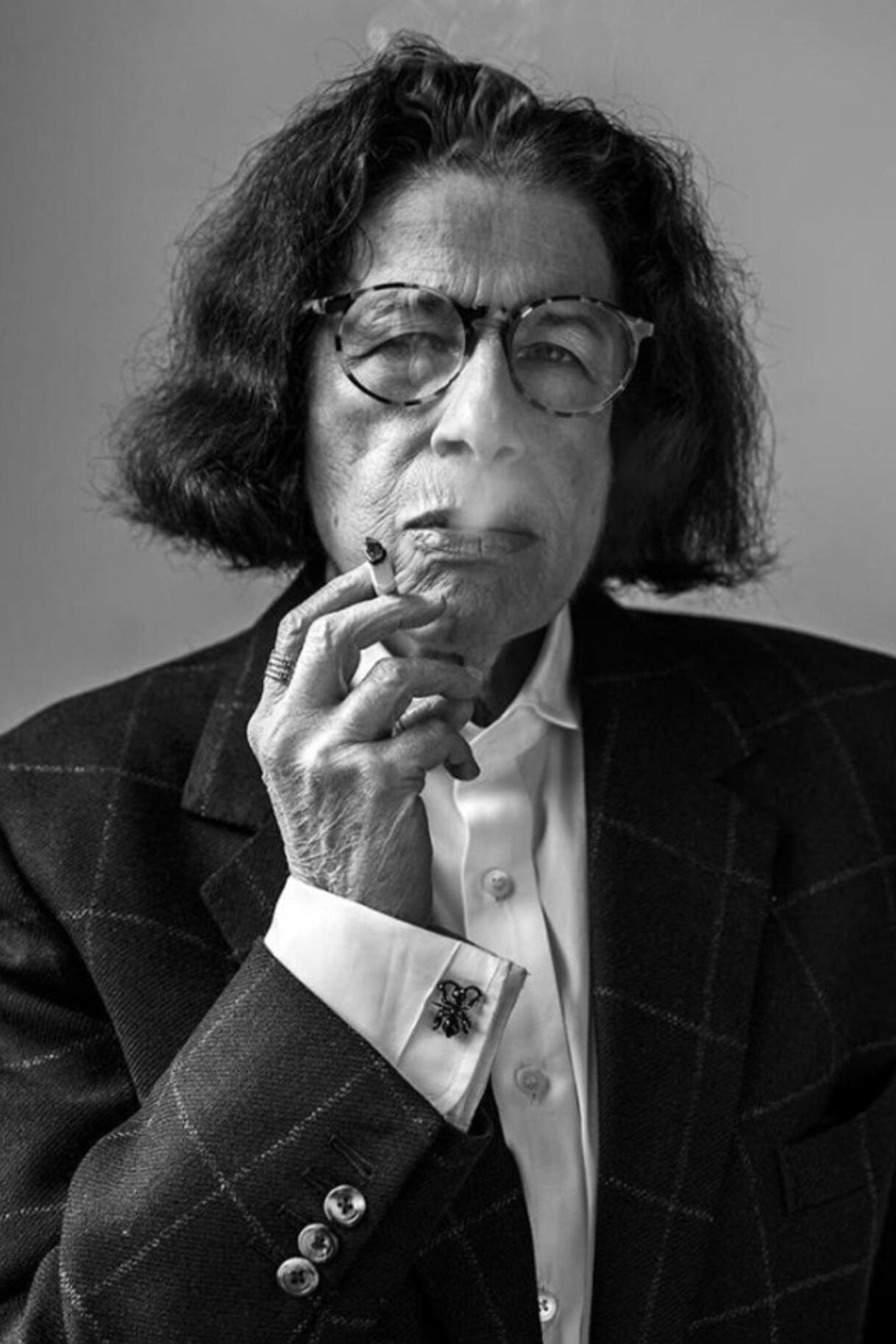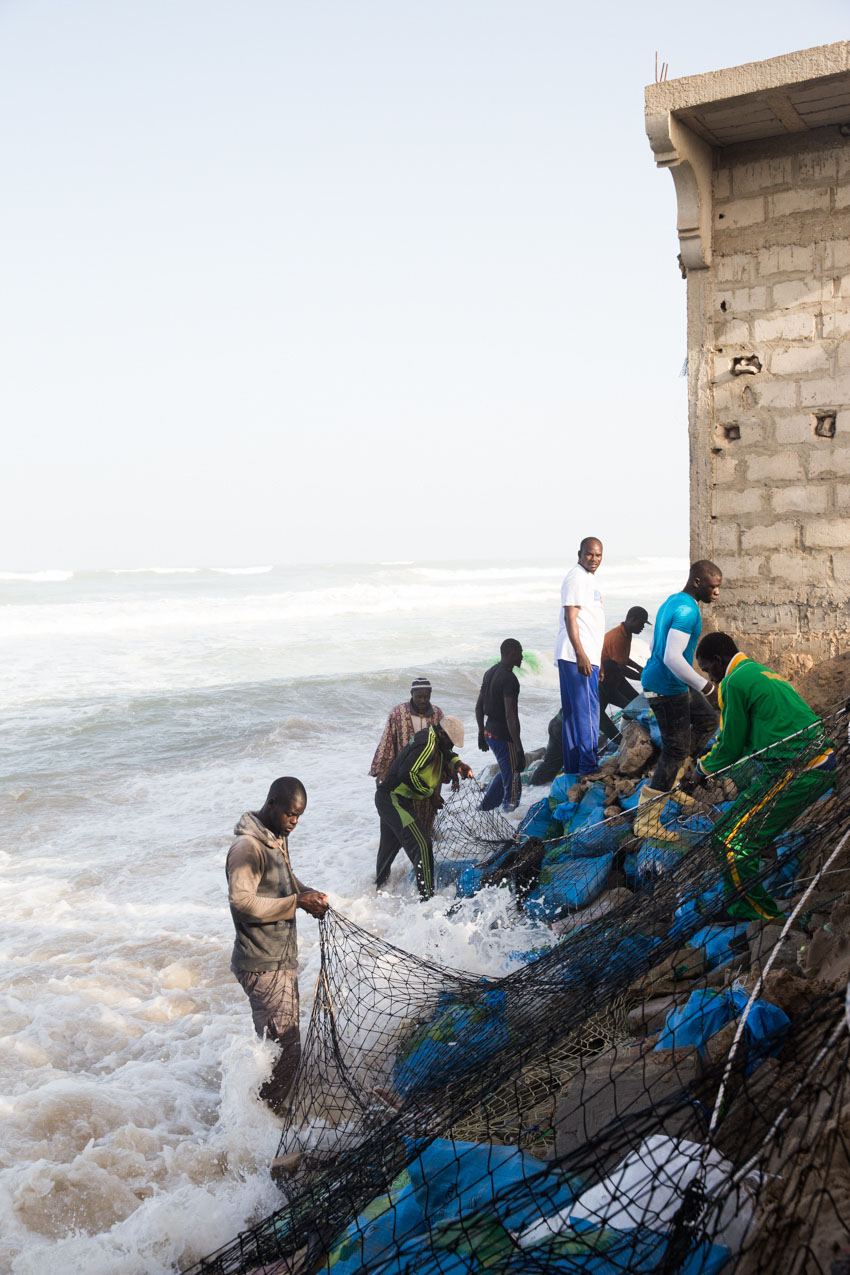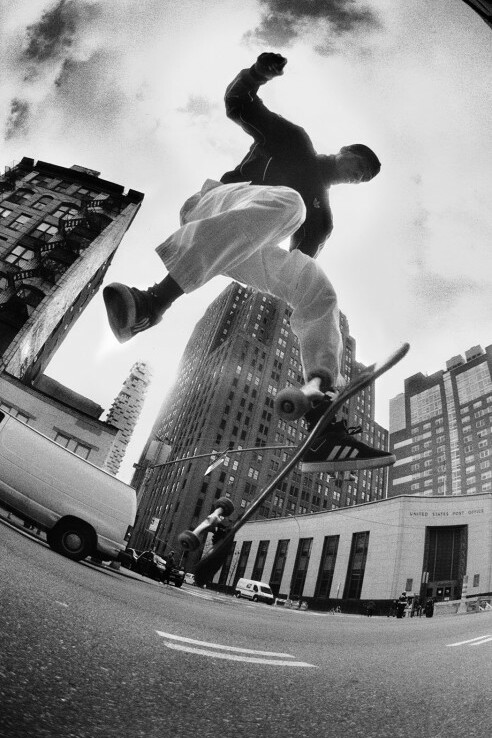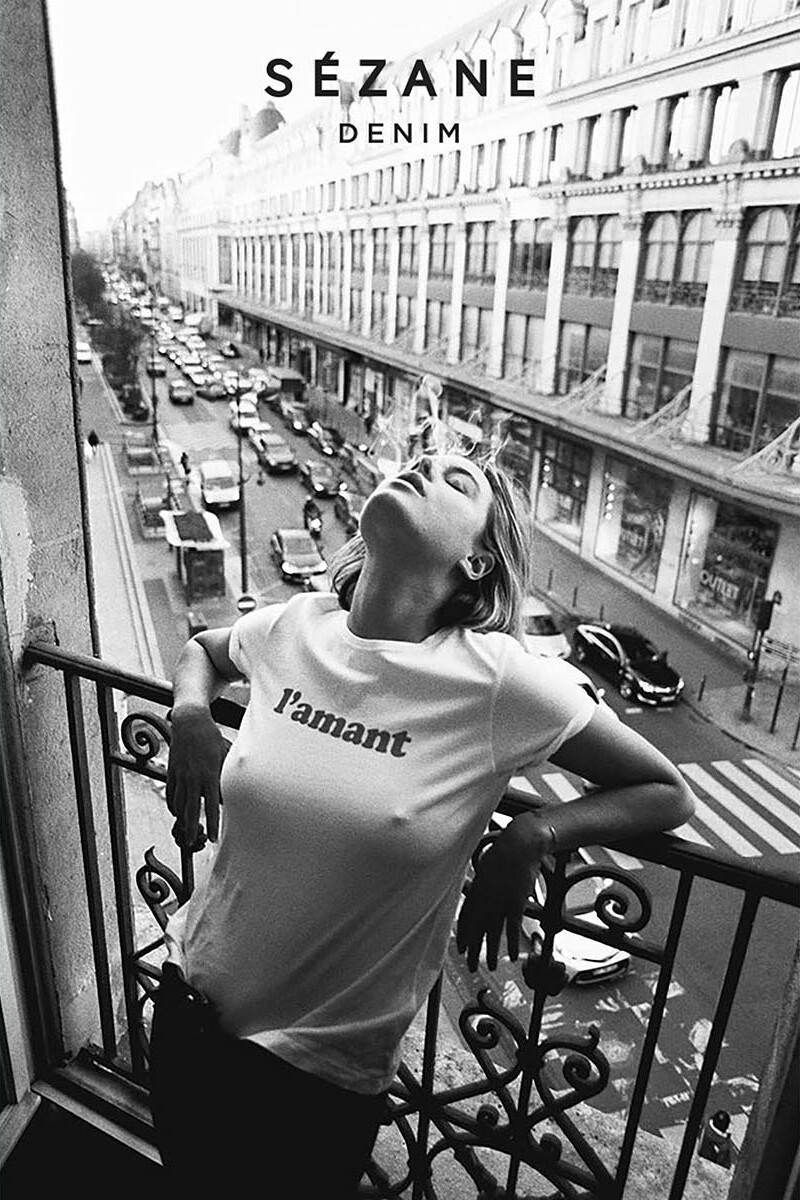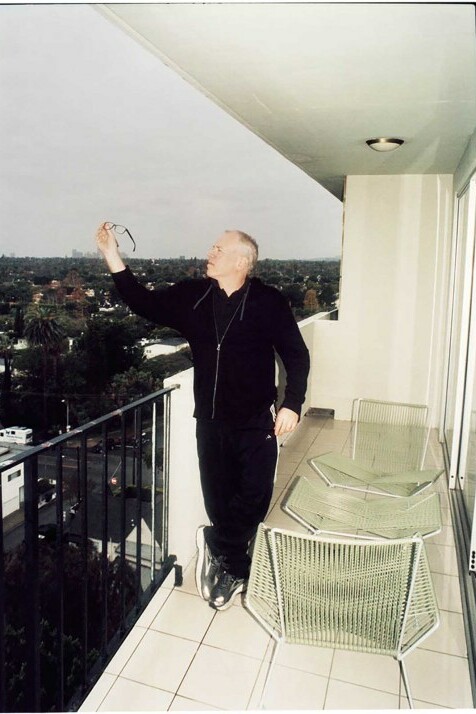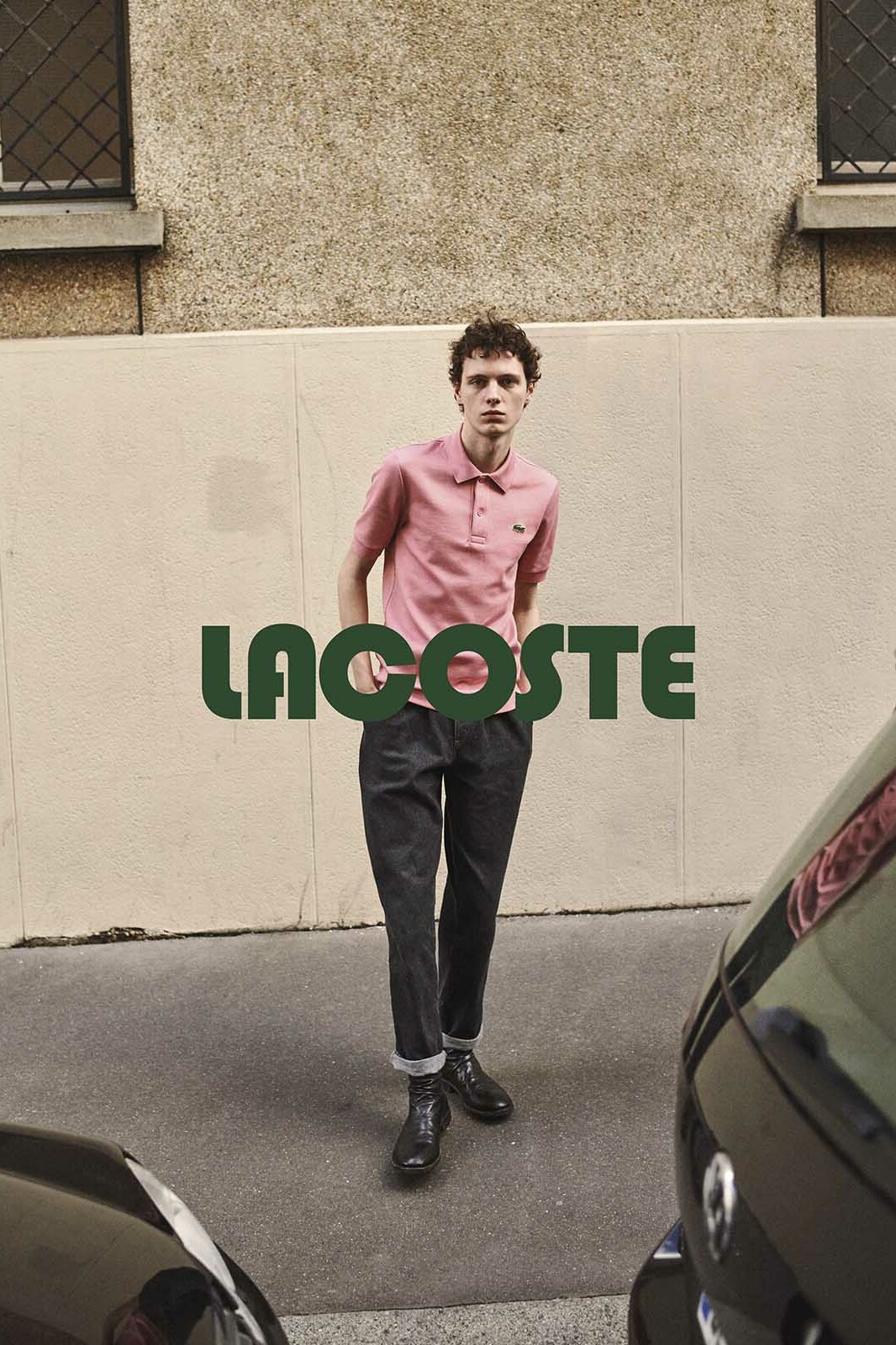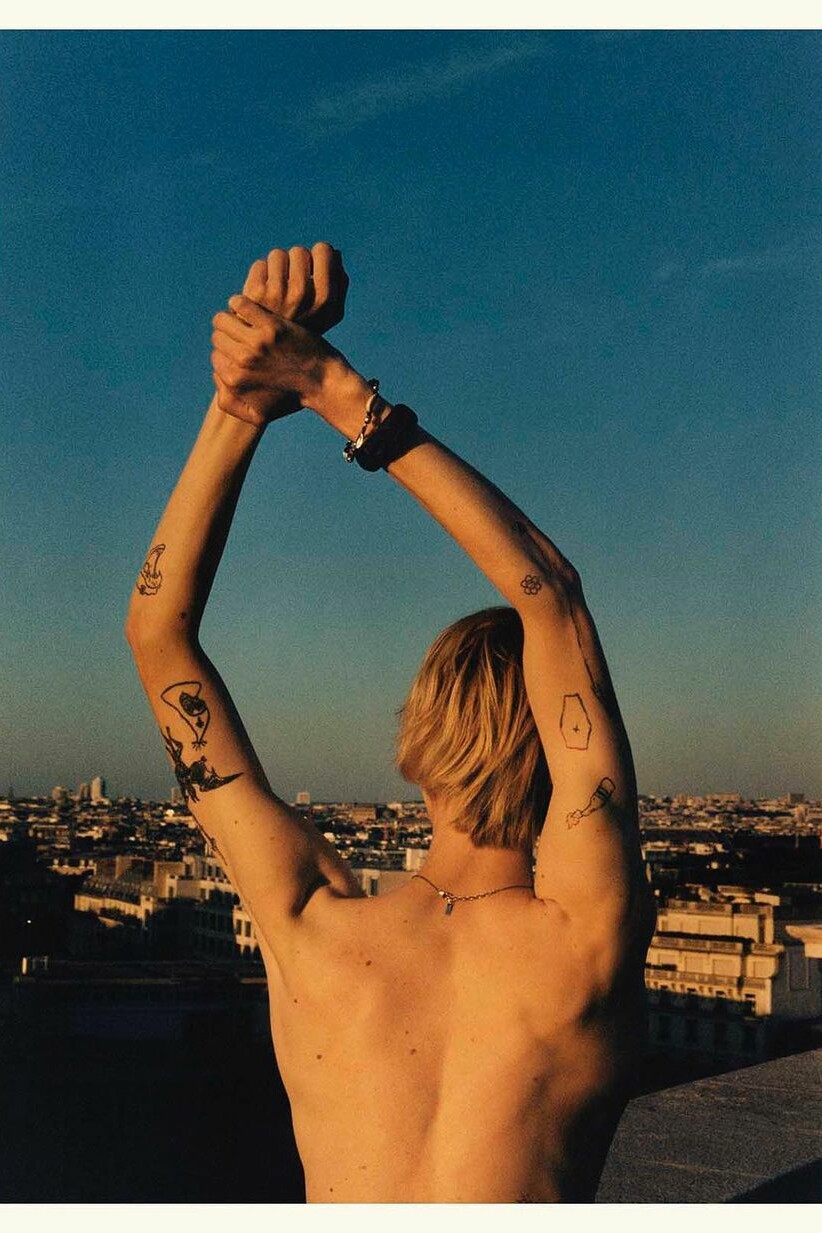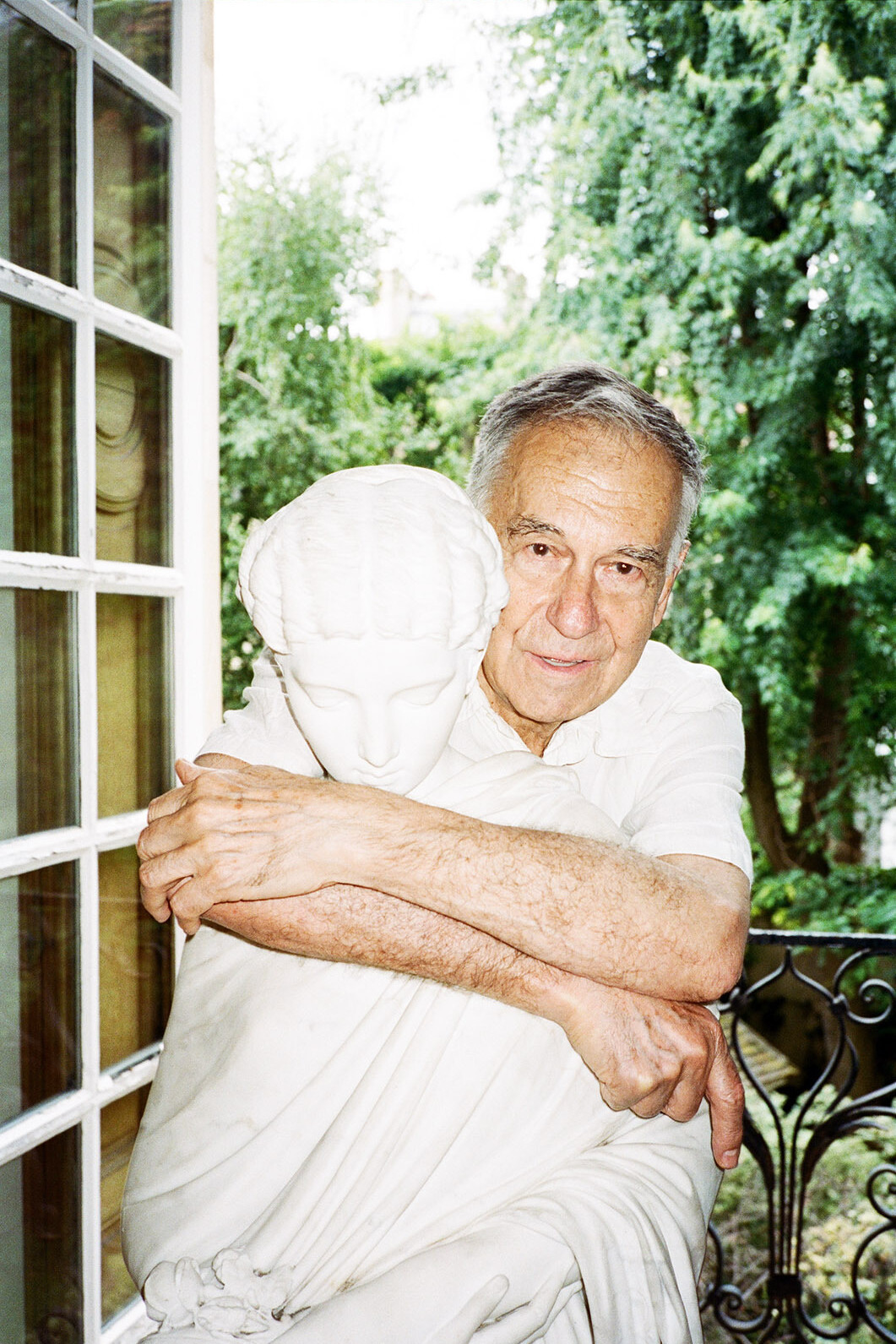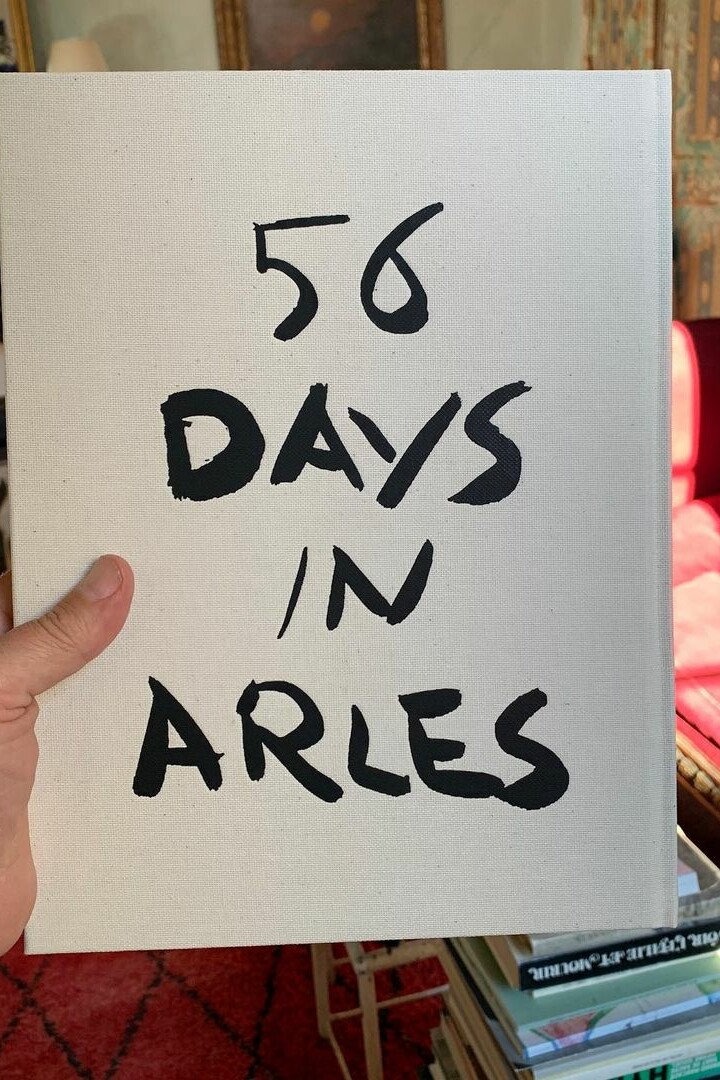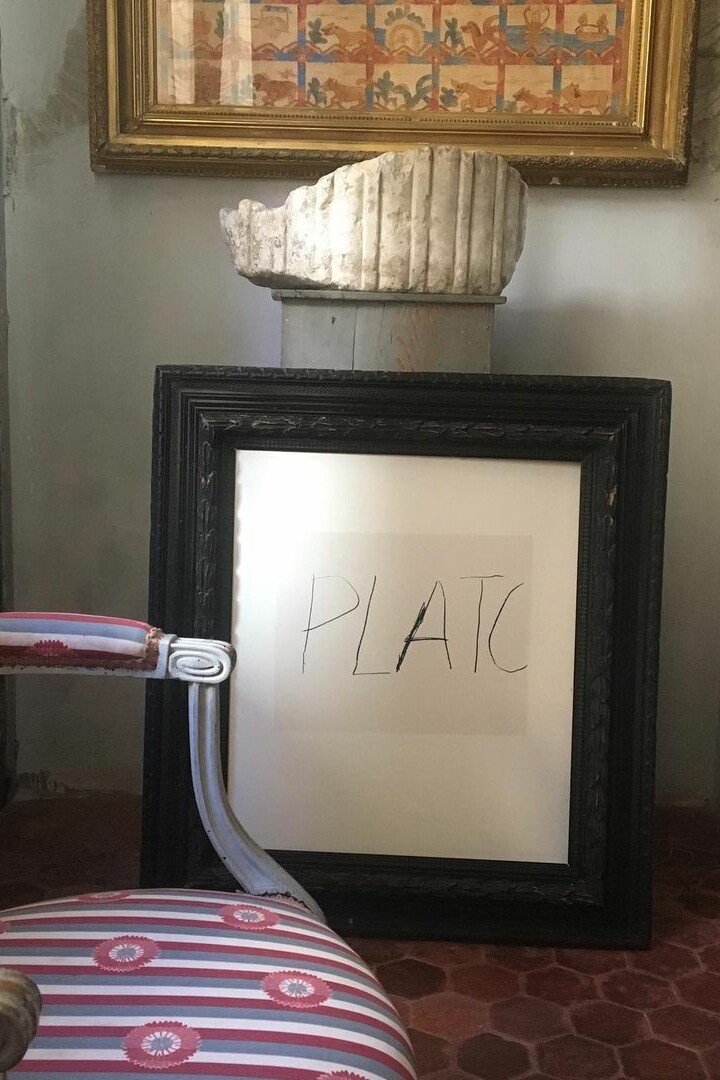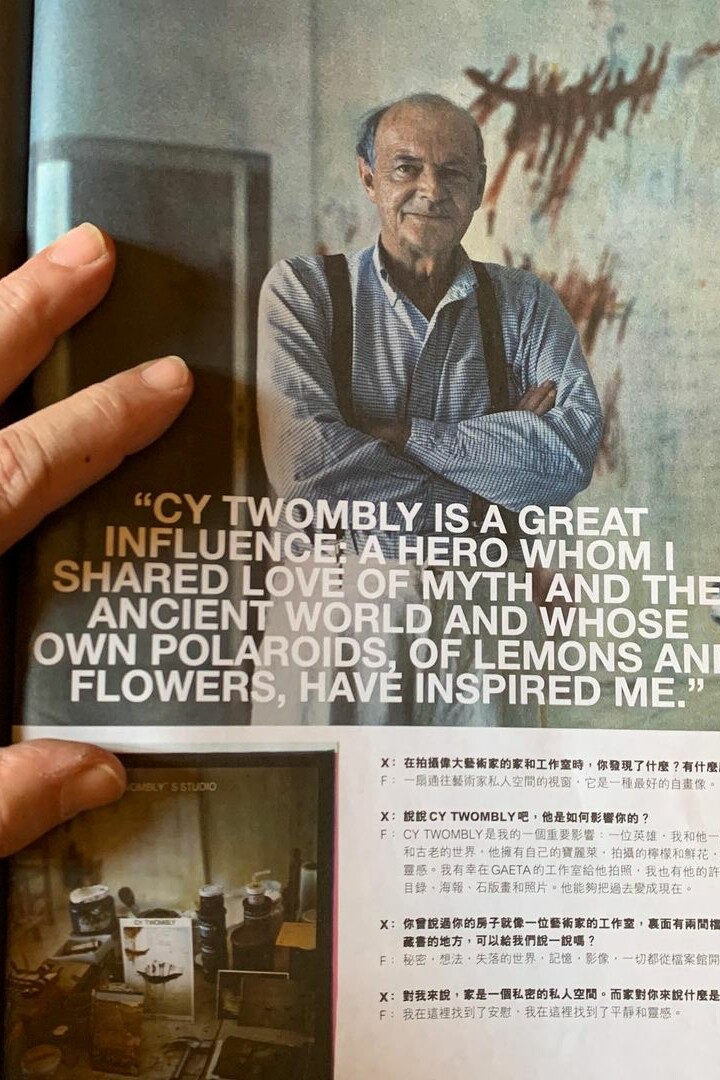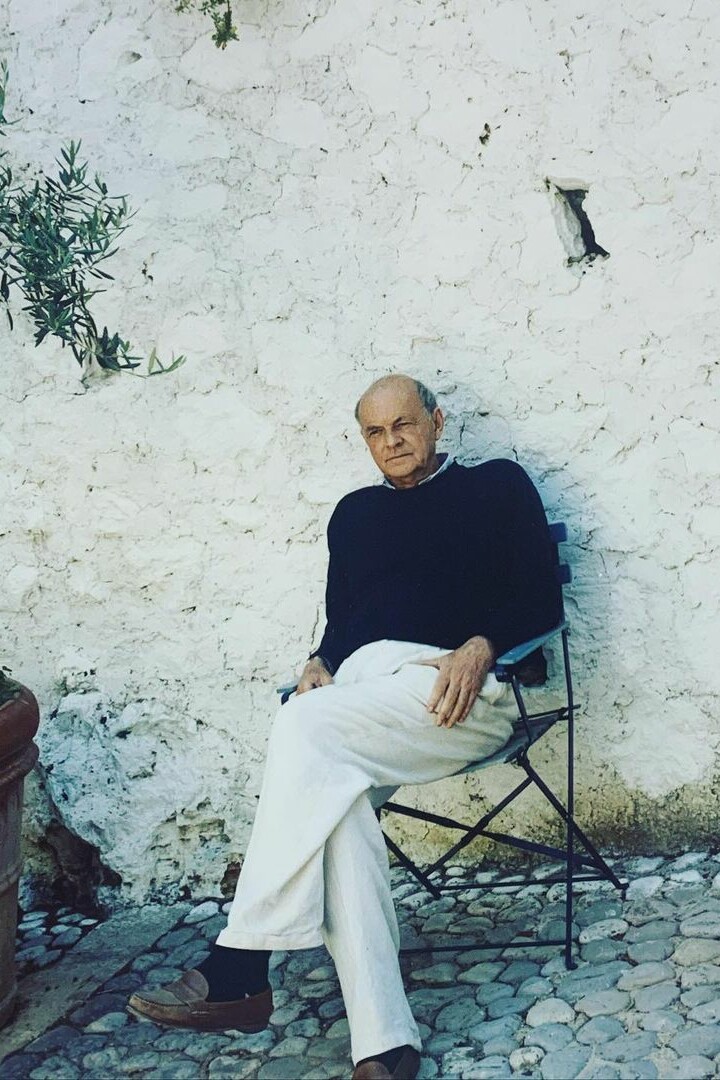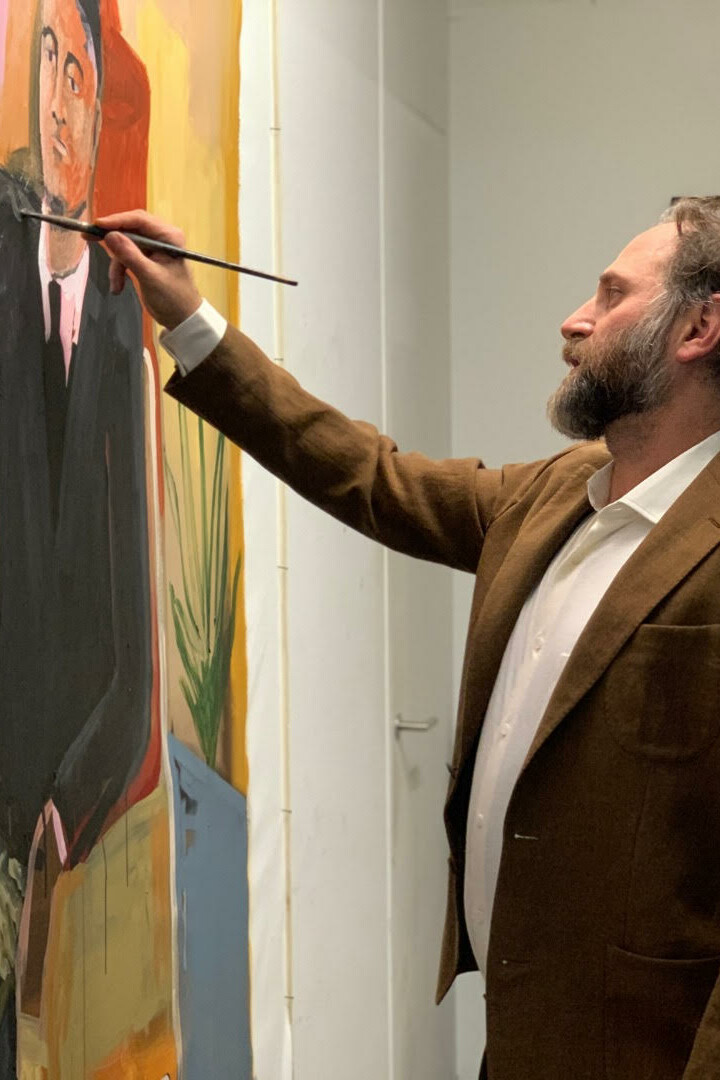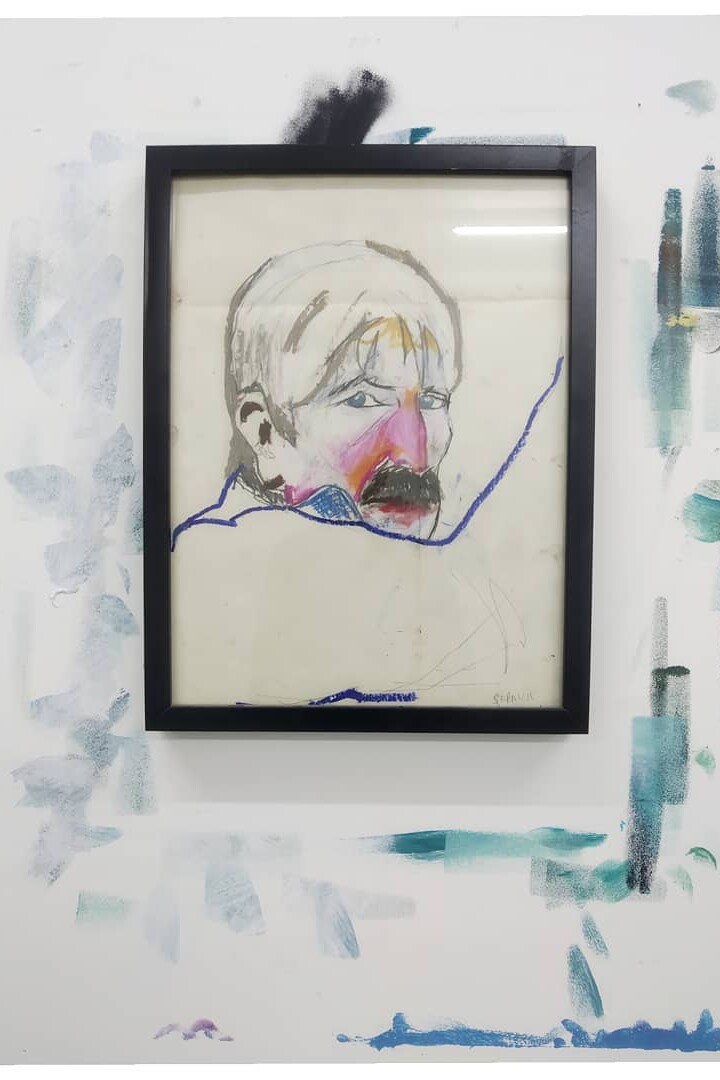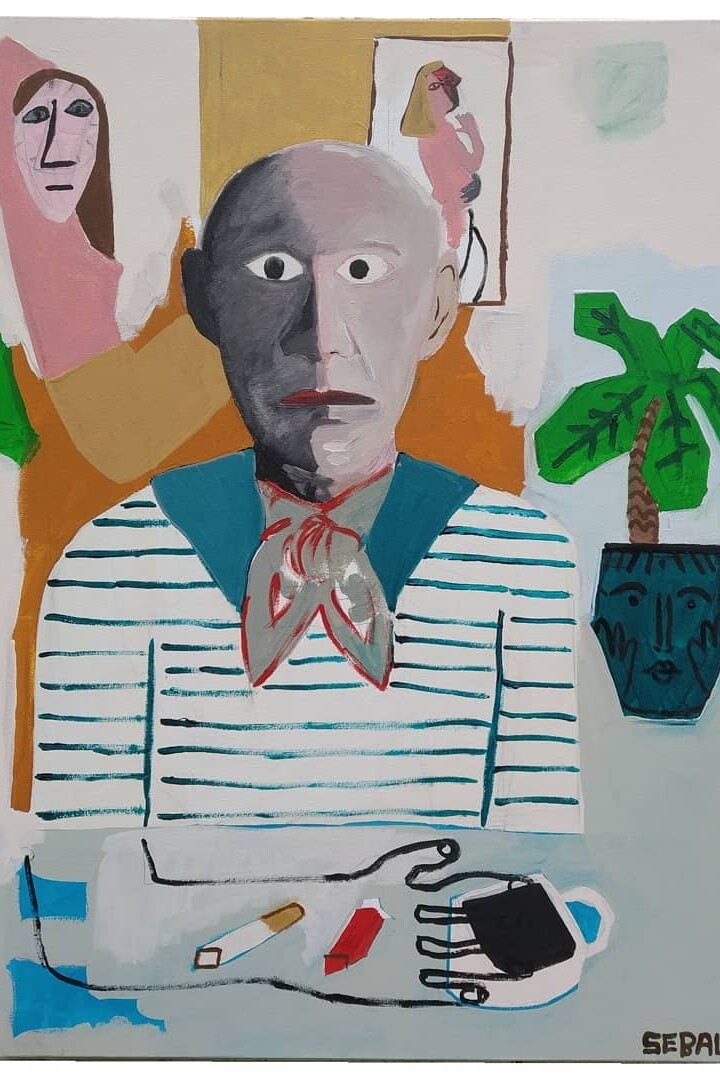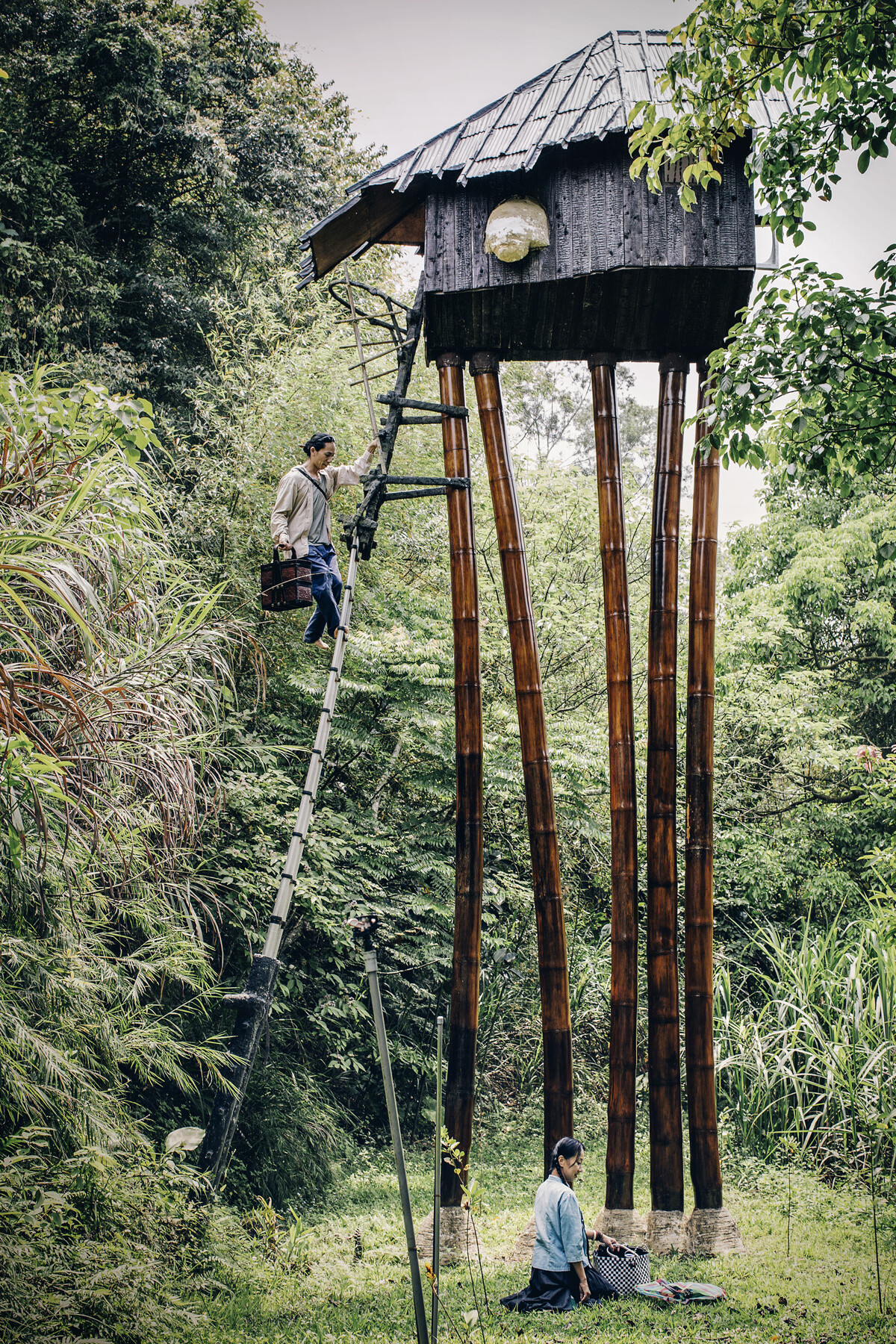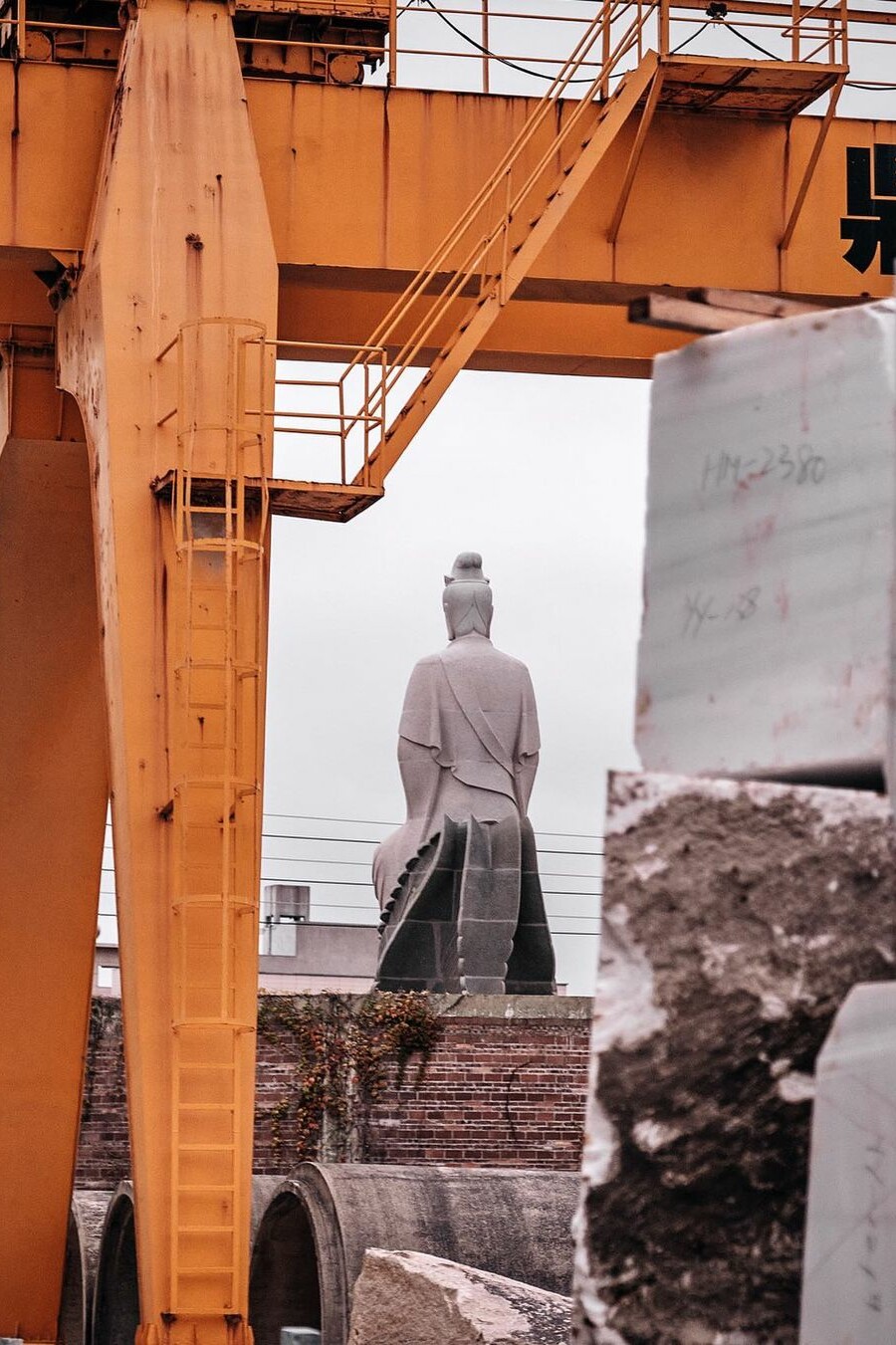library
In 1949, the French writer and filmmaker Jean Cocteau spent twenty days in New York City. The visit inspired a short book, Letter to the Americans, which will be published in English by New Directions in June. In this excerpt, Cocteau reflects on the different ways that France and America think about poetry, art, and the imagination.
THE NEW CRITERION
Impossible Foods and Beyond Meat made fake burgers cool. These startups want to do the same for fake fish. Meet the leading alternative seafood brands riding the plant-based food wave. While plant-based seafood made up just 1 percent of all plant-based meat sales last year, brands and investors are eager to crack the "white space," says Jen Lamy, senior manager of Good Food Institute's Sustainable Seafood Initiative.
Read full article on Inc. magazine
library
In a landmark experiment, scientists have found fresh evidence that a subatomic particle is disobeying one of science’s most watertight theories, the Standard Model of particle physics. The gap between the model’s predictions and the particle’s newly measured behavior hints that the universe may contain unseen particles and forces beyond our current grasp.Researchers with Fermilab in Batavia, Illinois, announced the first results of the Muon g-2 experiment, which since 2018 has measured a particle called the muon, a heavier sibling of the electron that was discovered in the 1930s.
Read full article by Michael Greshko on
National Geopgraphic
Tech companies want to run our cities. In Rio de Janeiro, a NASA-style control center aggregates data from hundreds of surveillance cameras and sensors built into the city since it partnered with IBM in 2010. In Phoenix, Arizona, Google spin-off Waymo is shuttling workers around in self-driving cars in partnership with the city’s transit network. And in the Chinese city of Xiangyang, advanced facial recognition technology from one of the country’s many surveillance startups gives residents entry to a housing complex while adding to a police database.
Read full article by Jathan Sadowski on Medium
library
TV and movies are one way that people, as we go through life, make sense of the world, building on the archive of our personal experiences and opinions of other places.
Absent direct experience with a people or nation, we speculate on what we do not know. This process involves a variety of sources, including reading, Googling, and accounts from somebody we trust. But often it is media that expose people to other cultures, above and beyond our own.
TV and movies fill the knowledge gaps with powerful images and stories that inform the way we think about different cultures. If the media’s messages have consistency over time, we may come to understand these as facts.
Read full article by Paolo Sigismondo on
Fastcompany
Every day, some new money weirdness crosses our feeds: teenage TikTok stars apologizing for recommending a Star Wars–themed cryptocurrency that turned out to be a scam, a longhair trader best known as DeepFuckingValue and Roaring Kitty testifying before Congress, the R&B singer Akon announcing he’s building a new city in Senegal that will operate on his proprietary cryptocurrency. Naturally, the Jack Bogle of this moment is the fratty founder of Barstool Sports, Dave Portnoy, who launched an exchange-traded meme-stock fund earlier this year and whose sex tape was recently blamed for a dip in the stock of a gambling company he’s heavily invested in.
Welcome to the non-fungible, memeified, cryptodenominated, degenerate future of finance.
Read full article by Max Read on New York magazine
library
Dispo, a new photo-sharing app that mimics the experience of using a disposable camera, is taking off. People are clamoring for invites to test the beta version. Early adopters are praising its social features. And investors are betting big on its future."A brilliant Taylor Lorenz explainer has made me, a 26-year-old, feel old, uncool, and out of the loop—again. A hot new app is in their invite-only beta testing phase, and I want in. Youtuber David Dobrik’s photosharing app promises the serendipity and surprise of the disposable camera experience, cashing in on the often undervalued thrill of delayed gratification."
Read full article by Taylor Lorenz on
The New York Times
Dispo, a new photo-sharing app that mimics the experience of using a disposable camera, is taking off.
In the app, users frame photographs through a small rectangular viewfinder. There are no editing tools or captions; when the images “develop” — i.e. show up on your phone at 9 a.m. the next day — you get what you get. Multiple people can take photos on the same roll, as might happen with a real disposable camera at a party.
“When I used to go to parties with my friends, they would have disposable cameras all throughout the house, and they’d urge people to take pictures throughout the night,” said David Dobrik, a YouTube star and a founder of the app. “In the morning, they’d collect all the cameras and look back at the footage and be like, ‘What happened last night?’”
library
The local food movement has promised to disentangle ourselves from the ills of commercial agricultural production. At the movement’s core is the notion that what is far away is out of the control of our communities and produced without the regard for our needs.
The Geographic Dispatch critically examines issues in our global food system in ways that transcend space and place.
library
If you don’t know, now you know. South Korea is a full-blown coffee haven, far exceeding any notions of kimchi-eating, sriracha and tea slugging. In fact, coffee shops in Seoul reached a whopping 18000 spots in 2016, surpassing the coffee-per-capita in Seattle and San Francisco.
Read full article on Compendium
library
From Lolita fashion and latex couture to neon-drenched big-rigs, anime-plastered vans, and chrome-heavy hot rods, subcultures in Japan are as varied as they are fascinating.
Co-editor of The Obsessed Irwin Wong is known for his punchy portraiture and insightful documentary photography.
We sat down with him to discuss his relationship with otaku culture, and his experiences in creating The Obsessed, in collaboration with gestalten.Here’s what he had to say.
library
“So much of the climate conversation is centered on extremely important information that can feel hard to connect to, like datasets, or it is inaccessible, like an Arctic ecosystem. I’m operating off the mindset that working people have essential information to provide about the environment and how it is changing.”
Photographer Greta Rybus on Climate Change in Senegal.
Source: This is Paper
library
A longtime star of the Bravo series Million Dollar Listing New York, Ryan Serhant has 1.5 million followers on Instagram and a million subscribers on YouTube. He is into video production and motivational speaking. The self-promoting performance is all meant to support his new brokerage, Serhant. He calls it “the future of where real estate, tech, and media collide.”
Read full article on Curbed
library
Ad-supported journalism means we get journalism targeted at people who will click on ads. Thus, the net impact of venture capital to this point has been prolonging the suffering of the ad-based model by creating perverse incentives that reward bad content. Silicon Valley (and some old-guard media companies) simply fell in love with the ability to reach large audiences.
Read full article on Medium
library
With digital platforms transforming legacy countercultural activity into profitable, high- engagement content, being countercultural no longer means being counter-hege- monic. What logic could possibly be upended by punks, goths, gabbers, or neo-pagans when the internet, a massively lucrative space of capitalization, profits off the personal expression and political conflict of its users?
Read full article on Document Journal
library
While public funding for the arts has plummeted since the ’80s, however, the web has increasingly encouraged public sharing of its consumption on social media. Online, we look more traveled, more cultured, more inclusive than ever before. And it’s difficult to argue that wider access to art, that our increasing proximity to foreign cultures, could be wrong. But if you look closer, you notice that all this connectivity is largely superficial — it is heavily prescribed and strongly overlaps.
Triggered by images of empty Italian piazza's, Soraya Roberts shares her thoughts on our obsession for sharing culture.
Read full article on Longreads
library
IN WESTERN MARKETS, DECADES OF MIDDLE CLASS CONSUMERISM ENTRENCHED OFFLINE SHOPPING HABITS. FOR CITIZENS IN THE U.S. AND THE U.K. — TWO SOCIETIES HIT HARDEST BY THE PANDEMIC — CONSUMPTION AND PHYSICAL MOVEMENT WENT HAND IN HAND.
Read full article by Chang Che on SupChina
library
We can protect the economy from pandemics. Why didn't we?
A virologist helped crack an impossible problem: how to insure against the economic fallout from devastating viral outbreaks. The plan was ingenious. Nobody was interested."“It’s really a 100-year thing,” Nathan Wolfe said. The '100-year thing' he was thinking about was a global pandemic, and how history would judge humanity’s efforts to prepare for it. His biggest fear, he said, was a virus unknown to human immune defenses starting a human-to-human transmission chain that would encircle the globe
Read full article by Evan Ratliff on Wired
library
"So the first thing that needs to be said in the effort to keep our heads is that everything never changes. More, the idea that everything will change usually plays into the hands of those who want nothing to change. The cycle of revolution and reaction has never been the most effective engine of progress. Nothing suits the interests of the old regime like utopianism. The thirst for change will not be slaked by the cheap whiskey of apocalyptic thinking."
"The only certain outcome of the apocalyptic temper is catharsis, and one way of describing the decline of our politics in recent decades is that it has increasingly become a politics of catharsis, in which crisis is met mainly by emotion. (Populism is just mass emotionalism, and the emotions are often ugly ones.) Apocalypse is not an analysis, it is the death of analysis. It sets the stage only for salvation, but salvation must never become a political goal. This is especially true in a democratic society, where the only saviors are, alas, ourselves."
Read full essay by Leon Wieseltier on Liberties





